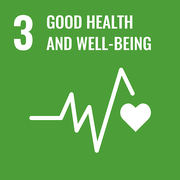
Shift work syndrome: increased risks for counter-clockwise rotating shifts
New research, published in the journal JAMA Network Open and coordinated by the Department of Psychology of Sapienza, in collaboration with Santa Lucia IRCCS in Rome and the University of L'Aquila, studied for the first time in Italy the effects of shift work on Italian nurses based on clockwise or anti-clockwise shift rotation. The study involved 144 nurses from 5 hospitals in Central and Southern Italy, monitored from July 2017 to February 2020.
In particular, the researchers wanted to ascertain whether nurses who work shifts with an anti-clockwise rotation (afternoon-morning-night) suffer worse consequences than those who work shifts with a clockwise regime (morning-afternoon-night). In other words, they wanted to clarify what is widespread implicit knowledge but which lacks experimental support.
To do this, the researchers took into account the sleepiness and fatigue perceived at the end of a shift while measuring the psychomotor performance of the health workers.
This is not the first work by this research group, which, under the leadership of Luigi De Gennaro of Sapienza University of Rome, has been studying the consequences of shift work on Italian nurses for years.
A first study showed that night shifts are associated with increased sleepiness and fatigue, as well as significant reductions in performance on psychomotor vigilance tasks. A subsequent study showed that in nurses, poor sleep quality, to which all shift workers are exposed, further impairs psychomotor performance at night.
"We hypothesised", says Luigi De Gennaro of the Department of Psychology of Sapienza, group coordinator, "that backward-rotating shift (BRS) was associated with increased fatigue and sleepiness and, above all, with reduced behavioural measures of sustained attention."
Consistent with this hypothesis, the study demonstrated a significant worsening in all dimensions measured in nurses working a counter-clockwise shift. In conclusion, all shift workers display a worsening of sleepiness, perceived fatigue and psychomotor vigilance associated with the night shift, but those on a counter-clockwise shift experience an amplification of these negative consequences.
The implications of this study may open up potentially innovative perspectives for the organisation of work in hospitals, prompting hospitals to convert their shift patterns when anti-clockwise.
"Certainly, this is a desirable first consequence of our study," adds De Gennaro - "But the more ambitious goal is to reduce the negative consequences of night shifts for any shift regime, and to this end, we are planning an even more ambitious study using phototherapy glasses for nurses to wear during the night shift."
Since more and more segments of the world of work are organised on an H-24 basis, it is crucial to raise awareness of the so-called "shift workers syndrome", i.e. the negative consequences of shift work, in order to introduce countermeasures based on solid empirical evidence to reduce these negative effects.
References:
Comparison of sleep and attention metrics among nurses working shifts on a forward vs- backward rotating schedule – Marco Di Muzio, Giulia Diella, Emanuele Di Simone, Mariella Pazzaglia, Valentina Alfonsi, Luana Novelli, Angelo Cianciulli, Serena Scarpelli, Maurizio Gorgoni, Annamaria Giannini, Michele Ferrara, Fabio Lucidi, Luigi De Gennaro - JAMA Netw Open. 2021 DOI: 10.1001/jamanetworkopen.2021.29906
Further Information
Luigi De Gennaro
Department of Psychology
luigi.degennaro@uniroma1.it
